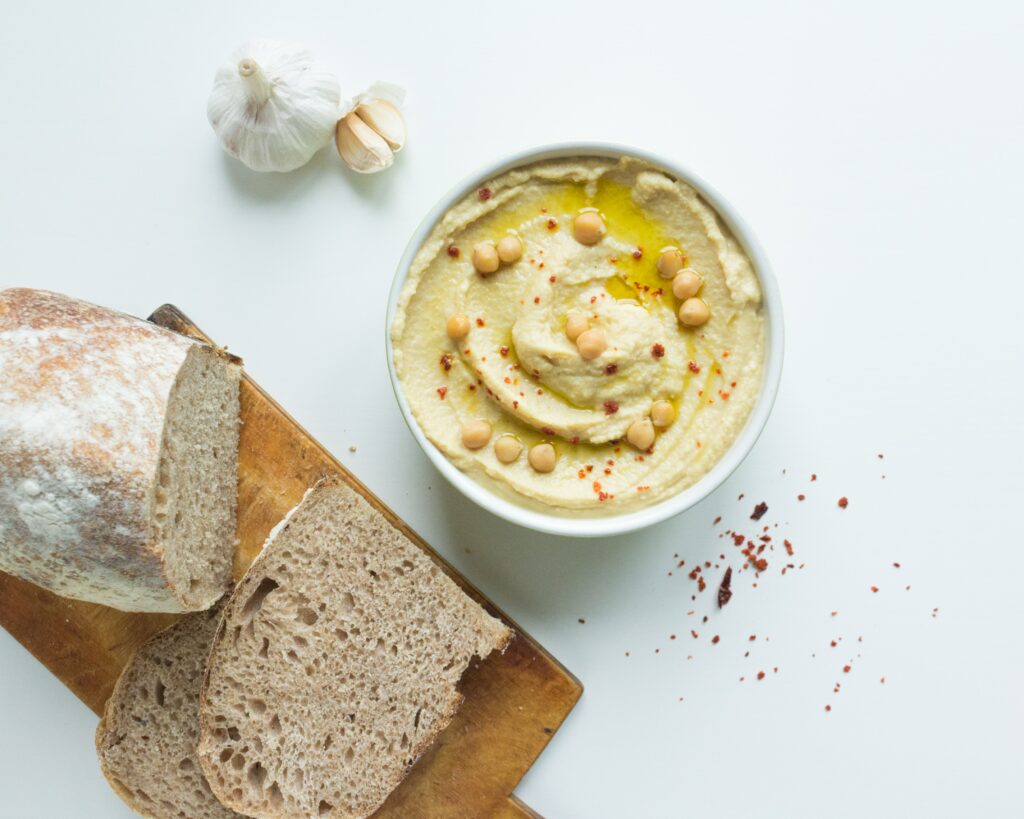There’s a reason—in fact, many—why the Mediterranean diet is a global phenomenon. This style of eating is consistently ranked as the healthiest diet. But if we take a step back, it’s much more of a lifestyle than a diet. In fact, calling it a diet is a bit of a misnomer. This way of eating is also a way of living. Honoring local and seasonal ingredients, it’s a delicious, satisfying, and healthy approach to food. As a whole, the Mediterranean diet nourishes your body from the inside out. Think: heart health, blood sugar regulation, and more.

As an intuitive eater, and someone who supports women on their intuitive eating journeys, the Mediterranean diet is practical and sustainable. It’s flexible. It emphasizes bio-individuality. Meals are build around real, whole foods: fresh produce, lean proteins, anti-inflammatory seafood, and whole grains. If you’re new to this style of eating, take a seat. Today, we’re chatting about the ins and outs of the Mediterranean diet. Spoiler alert—it’s worth the hype.
what is the mediterranean diet?
Despite its name, there is no official Mediterranean diet—not in the sense that there’s an Atkins diet. Rather, the Mediterranean diet is more of a lifestyle. It’s based on the traditional cuisines of Greece, Italy and other countries that border the Mediterranean Sea. Plant-based foods, such as whole grains, vegetables, legumes, fruits, nuts, seeds, herbs and spices, are the foundation of the diet. Olive oil is the main source of added fat. Fish, seafood, dairy and poultry are included in moderation. Red meat and sweets are eaten occasionally.
As a California native, the Mediterranean diet feels most like home. For good reason, many of us gravitate towards a coastal lifestyle, too. Not only does it connect us with our natural environment, but the temperate climate allows us to enjoy the simple things in life. Think: dining al fresco, getting adequate sunshine, and shopping at the farmers market. In the realm of food, that means getting back to basics. Fresh, seasonal, and wholesome ingredients take priority.
4 health Benefits of the Mediterranean diet
Research shows that those who live along the Mediterranean Sea consistently live longer. Although Greeks, Spaniards, and Italians don’t share the same diet, their nutrition has a lot in common. They eat the Mediterranean way. They emphasize an abundance of fresh produce, plant-based protein (legumes, beans, and nuts), fish, healthy fats, and whole grains.
Of the many reasons to eat the Mediterranean way, these are the top four:
- Reduces inflammation.
- Reduces the risk of heart disease.
- Protects against cancer.
- Prevents and manages diabetes.

can the mediterranean diet improve heart health?
It’s possible, yes. In many ways, this diet provides systemic anti-inflammatory effects—thanks to prioritizing omega-3-rich nuts and seafood (which are anti-inflammatory). Regarding heart disease, the most convincing evidence comes from a randomized clinical trial published in the New England Journal of Medicine. For about five years, authors followed 7,000 women and men in Spain who had type II diabetes or a high risk for cardiovascular disease. Those who ate a calorie-unrestricted Mediterranean diet, with extra-virgin olive oil or nuts, had a 30 percent lower risk of heart issues.
how does the mediterranean diet improve chronic illness?
Furthermore, many studies demonstrate a strong, inverse relationship between the Mediterranean diet and poor health (think: chronic diseases and cancer). Given its protective effects in reducing oxidative stress and inflammation, the Mediterranean diet is considered a powerful and manageable method to fight cancer. Additionally, adherence to a Mediterranean diet seems to be effective in preventing diabetes.

Myths and facts
Myth 1: Eating the Mediterranean diet is expensive.
Fact: Actually, it’s less expensive than consuming processed foods. If you’re creating meals out of beans or lentils as your main source of protein, and sticking with mostly plants and whole grains, then the Mediterranean diet is economical. In fact, the Mediterranean diet is also synonymous with the sustainability diet. In encourages shopping seasonally and locally, is less resource-intensive, cuts fertilizer use, and more.
Myth 2: Eating large bowls of pasta and bread is the Mediterranean way.
Fact: Typically, Mediterraneans don’t eat a huge plate of pasta. Instead, pasta is usually a side dish with about a 1/2-cup to 1-cup serving size. The rest of their plate consists of salads, vegetables, fish or a small portion of organic, grass-fed meat, and perhaps a slice of bread.
Myth 2: The Mediterranean diet is only about the food.
Fact: Yes, the food is a huge part of the diet. However, don’t overlook the other ways the Mediterraneans live their lives. For example, they prioritize culture and pleasure. They sit down for a relaxed, leisurely meal with others. Mediterraneans also enjoy plenty of physical activity.
how to build a plate, the mediterranean way
For simplicity’s sake, consider these four core principles:
- Build meals around leafy green vegetables, beans, legumes, fruit, and nuts
- Eat high-quality, omega-3 rich fish at least twice per week (think: sardines, anchovies, salmon, etc.)
- Choose lean poultry and pasture-raised eggs in moderation
- Use extra-virgin olive oil regularly
Mediterranean diet recipes embrace vibrant foods. Meals are built around colorful vegetables, fruits, legumes, lean proteins, and healthy fats. There is a general focus on plant-based ingredients, a variety of seafood, and eating seasonally (and locally!).
delicious mediterranean recipes
There are countless recipes to choose from. Best of all, they’re simple and flavorful. Suzy, from the Mediterranean Dish, shares wholesome recipes with Mediterranean flavors. Yumna is my go-to for delicious Mediterran food. Otherwise, hop over to Downshiftology for all-things Mediterranean-inspired meals—think: shakshuka to falafel to cauliflower rice tabbouleh.

Images courtesy of Unsplash.
This article is for informational purposes only. It is not, nor is it intended to be, a substitute for professional medical advice, diagnosis, or treatment and we recommend that you always consult with your healthcare provider.



Leave a Reply